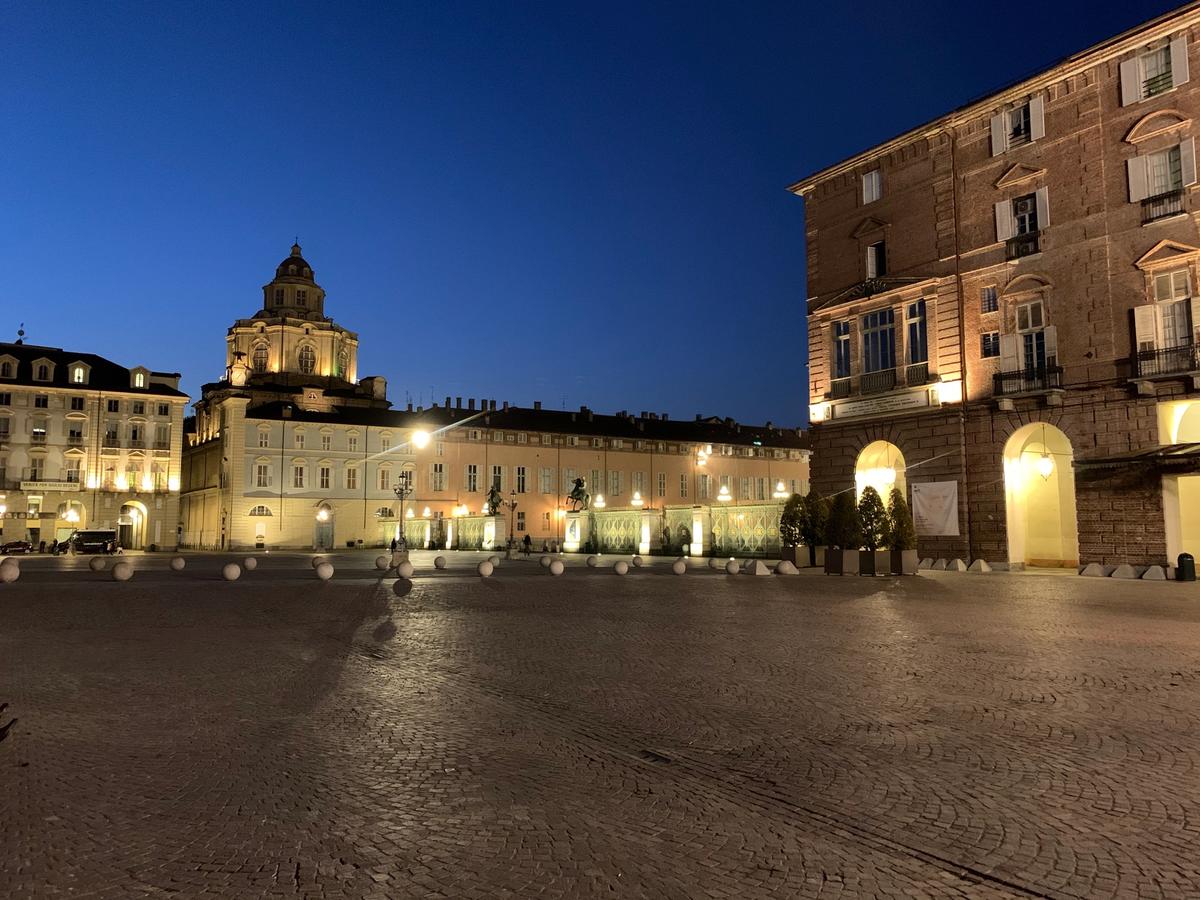I’m in Turin and it’s day ten of the national coronavirus (Covid-19) house arrest. We’re allowed out for only the most essential purposes, and the police are authorised to challenge us and impose a fine if they think our reason is frivolous. Nearly everyone is keeping to the rules and the fear is growing. More people have died now than in China, with a toll of 3,405 by the time of writing.
Turin feels like one of De Chirico’s metaphysical paintings, the ones with an empty square and arcades; the stillness lets you count the sound of passing cars one by one.
But the need to break the silence has been too strong, so some genius set up a flash mob a few days ago, in which everyone was invited to go out onto their balconies and sing or play an instrument. From Sicily to the Alps, people joined in and social media users worldwide were enchanted by the Italians living up to their stereotype for once. I came around a corner near my house and caught Billie Holiday’s All of me, why not take all of me… played by a saxophonist and a trumpeter across the square, riffing back and forth. The archbishop did his bit by telling the churches to ring all the bells at midday last Sunday, so for a quarter of an hour the whole town reverberated with their sound.
This lockdown could be seen as the most extraordinary social experiment. Nothing like it has happened before, so I hope someone is keeping notes. Everything public is shut, from schools to bars to shops. No congregating is allowed anywhere for any reason. The church has obeyed the state and no public masses or other liturgies are being celebrated; I am awestruck at the thought that this must be for the first time since Christianity came to the peninsula in the days of Emperor Nero.
Of course there is no public artistic activity, either. Museums, commercial galleries, auctions and exhibitions are shut. Some can probably be postponed, such as the current show in the Castello di Rivoli in Turin of Uli Sigg’s collection of Chinese art, but in Rome, the great exhibition of works by Raphael assembled to celebrate his quincentenary is just hanging in the dark. Has the Scuderie del Quirinale put up a virtual exhibition of the works of art? No, it hasn’t because Italian art institutions are still far behind the UK in their digital capacity.
I did a quick tour of what the main ones had to offer and voted Turin’s Museo Egizio the best. Its director, Christian Greco, gives a nicely judged little talk about an exchange of letters between a reproachful ancient Egyptian father and his son.
Maybe this is a good time for artists, I think, and ring the Transavanguardia artist Enzo Cucchi, who is scornful: “Why do you think we are any different from anyone else? We’re just getting on with it. But I can tell you one thing: there will only be a handful of us left by the end. Thousands who have been created by the art system will be winnowed out”.
There is still one place where you can see real art: the doors of the churches are open, and they count as a place where you may go for “health reasons”. But to go into them now for the purpose of tourism seems just bathetic. Among the many feelings this strange interlude is arousing in me is the certainty of something I have suspected for a long time. Art is not nearly as important as we’ve cracked it up to be for the past century or so; beauty will not save the world.
What this lockdown, which may be prolonged into mid-April, will cost in economic terms is still incalculable. I can give one fact: tourism represents 13.3% of the Italian economy, and the season would normally be getting going now.
And what is Amin, with a wife in Bangladesh and a “job” selling roses to people in cafés, living on now?
• Anna Somers Cocks talks about the Italian lockdown on this week's episode of our podcast. Listen here
UPDATE 30 March: The Scuderie del Quirinale has posted a virtual tour of the Raphael exhibition on its YouTube channel.


